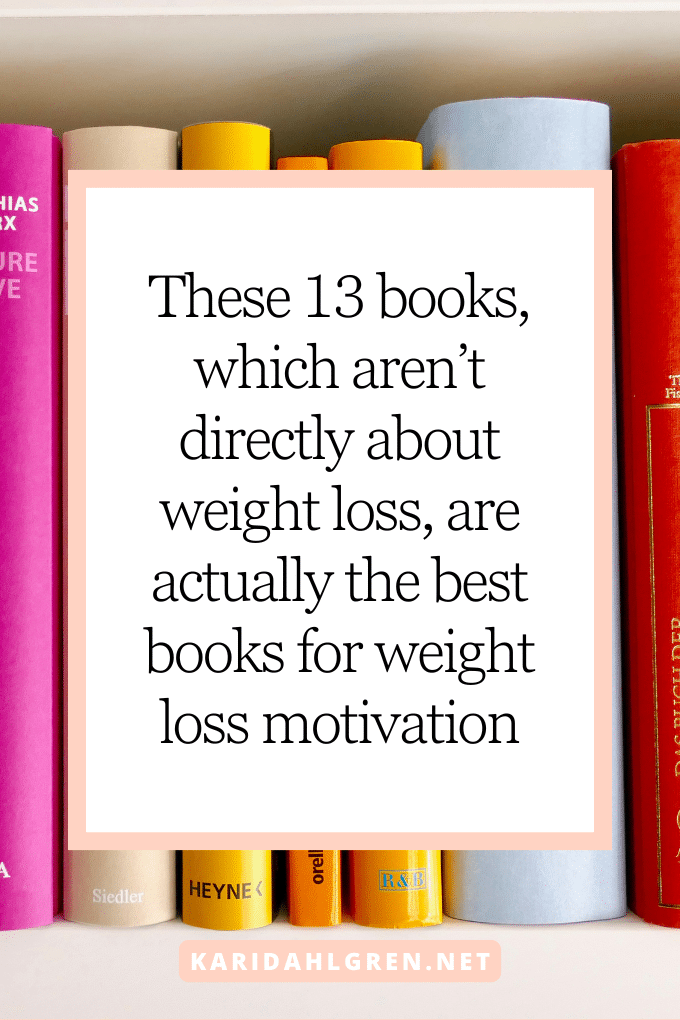
If you’re looking for the best books to motivate weight loss, you’re in the right place—but not in the way you might expect. As an eating psychology coach (and a self-help book enthusiast), I believe the key to lasting change isn’t another diet—it’s the inner work.
True transformation happens when you shift your mindset, heal your relationship with food, and step into the best version of yourself. And when you do that, your physical health naturally follows.
This list isn’t just a roundup of the best books for weight loss motivation—it’s a collection of powerful reads that challenge conventional wisdom and help you become the best version of yourself. Some books directly address food and eating habits, while others might seem unrelated at first glance. But rest assured, every book here has the potential to reshape your perspective in ways that go far beyond the scale.
The Best Self-Help Workbooks for Weight Loss Psychology
Workbooks are hands down one of the most underrated tools for personal growth. They don’t just teach you new concepts—they guide you through applying them. And when it comes to shifting your mindset around food and weight, that kind of hands-on approach is invaluable.
While a workbook can’t replace working with a therapist or coach, it can give you a structured path for self-reflection and change. Many books on weight loss psychology offer eye-opening insights, but workbooks take it a step further by helping you turn awareness into action.
Below are my top picks for self-help workbooks that support a healthier relationship with food and body. Even if some don’t seem weight-loss related at first, trust that they target the mindset shifts that make the biggest difference.
1. Why We Do the Things We Do by Kari Dahlgren
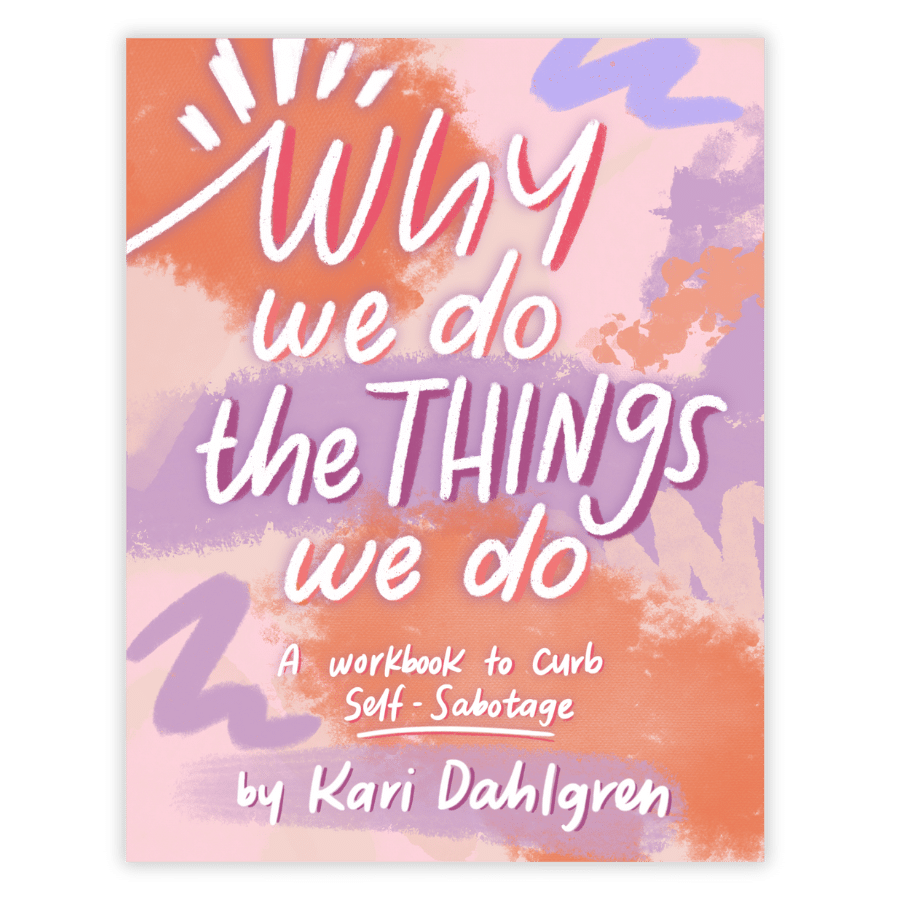
If you’ve ever felt stuck in a cycle of emotional eating or self-sabotage around weight loss, this workbook will help you uncover why. Through guided exercises and thought-provoking journal prompts, Why We Do the Things We Do helps you identify any subconscious beliefs that may be driving unwanted eating patterns. You might think you already know what you believe about food and weight, but putting pen to paper has a way of revealing unexpected truths.
I know this firsthand—after creating this workbook, I completed it myself and still uncovered new insights, despite knowing exactly what was coming! It reinforced just how powerful self-inquiry can be for bringing hidden beliefs to light. If you’re ready to break free from the patterns that have been holding you back, this workbook is your guide.
2. Don’t Believe Everything You Feel by Robert Leahy
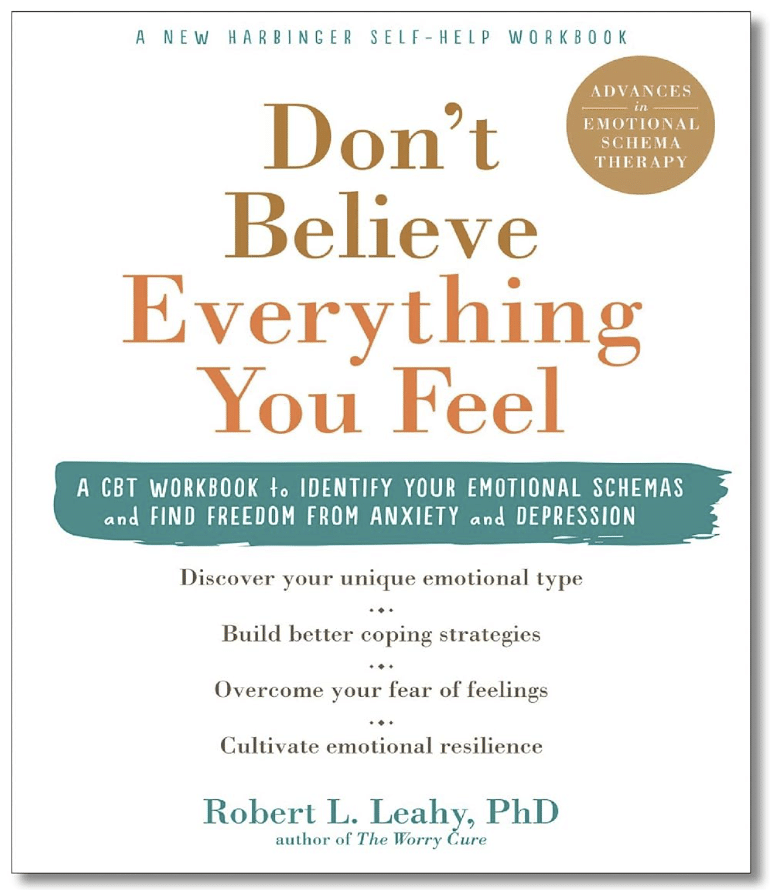
Emotions shape so much of our daily lives, yet most of us were never taught how to navigate them—especially the uncomfortable ones. This workbook helps close that gap.
I originally picked up Don’t Believe Everything You Feel on a whim—ironically, because I disagreed with the title! But once I cracked it open, I knew it belonged on this list. One of the biggest revelations for me was the concept of emotional perfectionism, the unconscious belief that life should feel good all the time. I had never put a name to it before, but once I did, it changed everything.
As someone living in recovery from compulsive eating, I know firsthand how avoiding uncomfortable emotions can fuel emotional eating. This workbook is a powerful tool for breaking that cycle and learning how to sit with emotions rather than numbing them with food.
The Best Books for Weight Loss Motivation
The best books for weight loss motivation aren’t just about eating habits—they’re about the deeper psychological shifts that help you stop self-sabotage and break free from emotional eating. When your mental house is in order, the physical house naturally follows suit. That means reaching your natural weight without obsession or restriction.
Here are some of my favorite self-help books that, in one way or another, shape the psychology of eating and the path to true food freedom:
3. Women, Food, and God by Geneen Roth
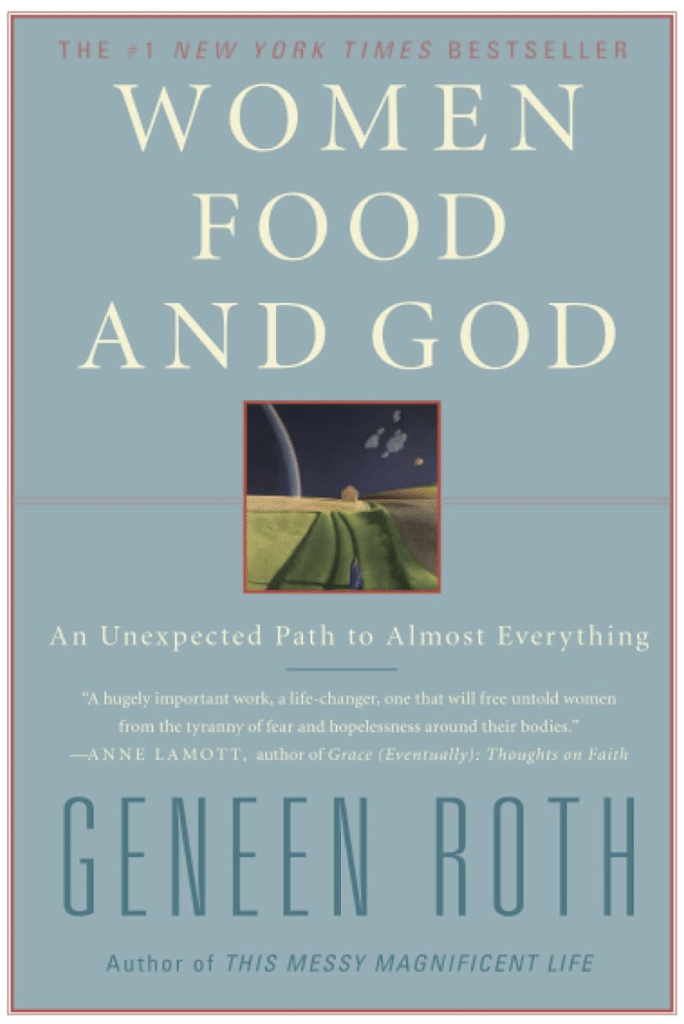
In Women, Food, and God—which refers to God in a more spiritual sense than religious sense—Geneen Roth explores the deep-rooted emotional and spiritual reasons behind our eating habits.
Geneen illustrates how our relationship with food isn’t just about hunger but is deeply intertwined with our beliefs about self-worth, love, and our spiritual essence. This is one of my favorite books of all-time as it goes far beyond the psychology of weight loss and delves deep into the psycho-spiritual layers that carry all the “juice.”
4. Daily Reminders on Psycho-Spiritual Wellness by Kari Dahlgren
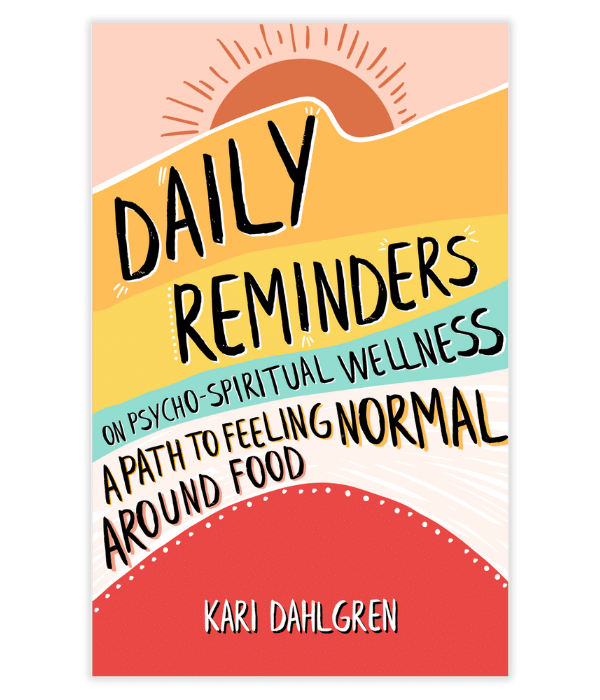
Letting go of dieting can feel unsettling—especially if food rules have provided a sense of control. Daily Reminders on Psycho-Spiritual Wellness is designed to be a steady, supportive companion on that journey, offering bite-sized insights to help you navigate the emotional and spiritual layers of compulsive eating.
Psycho-Spiritual Wellness is the foundation of my approach to healing one’s relationship with food, blending psychology and spirituality to address the deeper forces behind overeating. Each standalone chapter in Daily Reminders offers a thought-provoking yet gentle nudge toward food freedom.
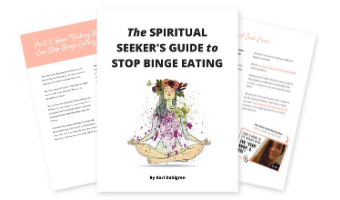
Want to dive into the psycho-spiritual causes of overeating in a FREE self-help book for weight loss? Get your copy of my beautifully-illustrated 13-page ebook, The Spiritual Seeker’s Guide to Stop Binge Eating
5. When Food Is Comfort by Julie Simon
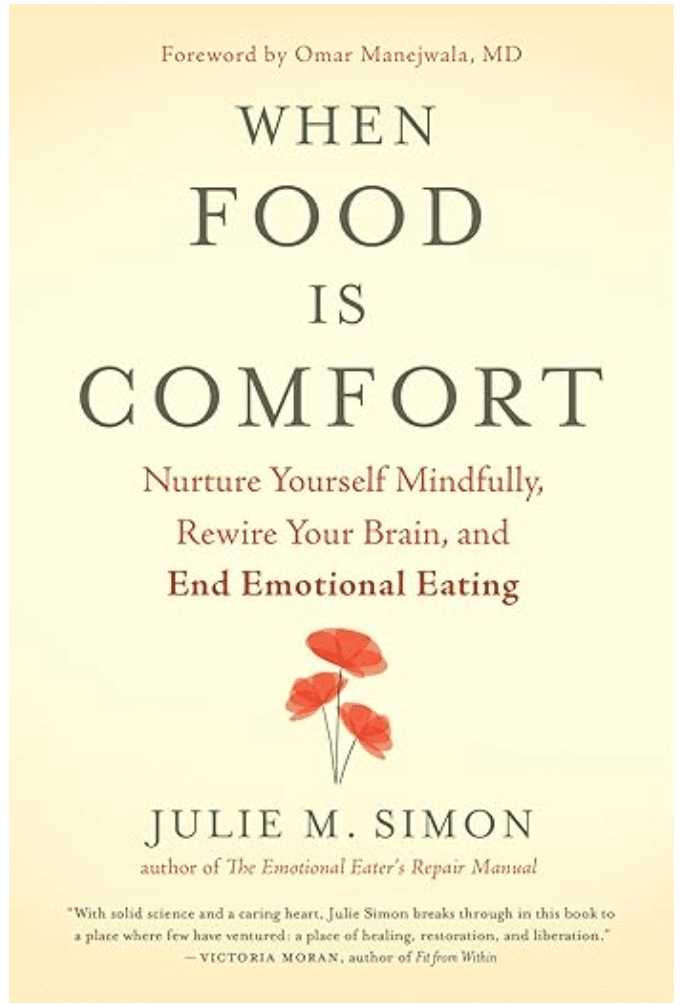
While this book isn’t new, it’s a fresh addition to my roundup of the best books for weight loss motivation. Unlike traditional weight loss books, When Food Is Comfort shifts the focus away from dieting and instead hones in on emotional attunement and self-regulation—two skills I strongly advocate for when it comes to breaking free from compulsive eating.
For an even deeper impact, pair this book with my Stop, Drop, & Feel method for stopping binge eating. Both approaches emphasize emotional tolerance: the ability to sit with discomfort rather than turning to food as a coping mechanism. While weight loss isn’t the goal, many find that it naturally follows when emotional eating is no longer in the driver’s seat.
6. Heal Your Body by Louise Hay
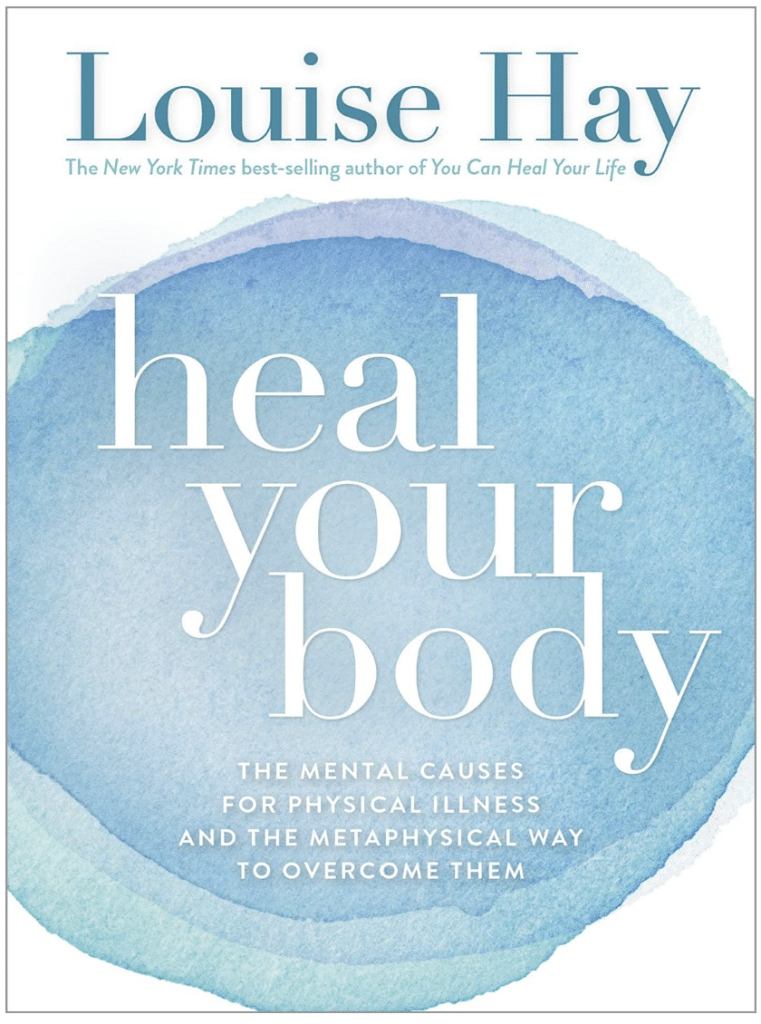
At first glance, Heal Your Body might not seem like a typical pick for a list of the best books for weight loss motivation—but the mind-body connection is a powerful force in our relationship with food. This spiritual self-help book by Louise Hay explores the metaphysical meanings behind physical ailments, offering insight into how emotions and thought patterns may contribute to health challenges. Again, while this book doesn’t focus on weight loss directly, it invites reflection on the deeper psycho-spiritual dynamics that shape our bodies and well-being.
7. The Language of Letting Go by Melody Beattie
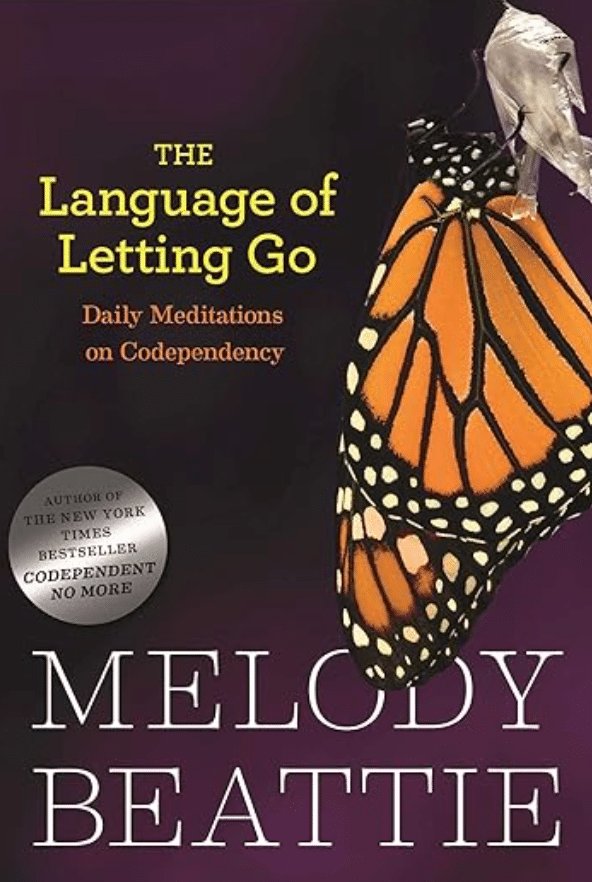
At first glance, a book on codependency might not seem like an obvious pick for a list of the best best books for weight loss motivation. But if you’ve ever struggled with people-pleasing, emotional suppression, or putting others’ needs ahead of your own, The Language of Letting Go could be more relevant than you think.
Unprocessed emotions can contribute to holding onto extra weight—both physically and emotionally. This therapist-recommended book offers daily reflections that encourage self-care, emotional boundaries, and the release of past burdens.
Louise Hay (author of Heal Your Body, listed above) suggests that resistance to forgiveness is one of the spiritual roots of weight gain. The Language of Letting Go helps shift that resistance, making space for healing—not just emotionally, but physically as well.
8. The Body Keeps the Score by Bessel van der Kolk
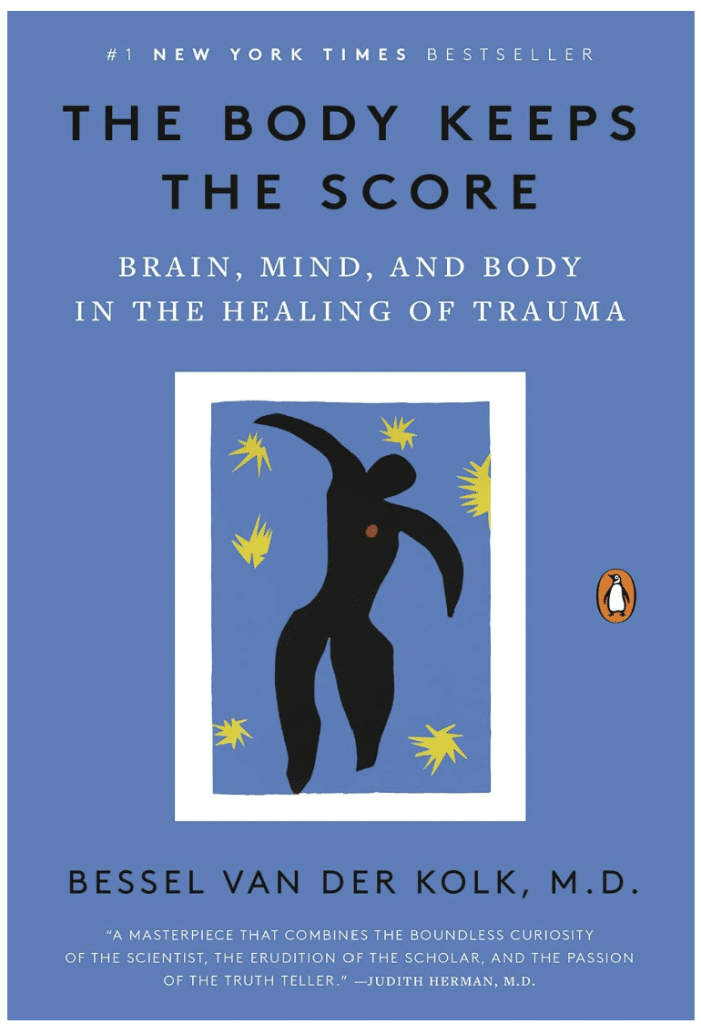
While The Body Keeps the Score isn’t about weight loss, its insights into how trauma impacts the body and mind make it a powerful read for anyone struggling with emotional eating or body image. Bessel van der Kolk explores how unprocessed trauma can manifest physically, shaping behaviors, stress responses, and even our relationship with food.
If you resonate with the idea that trapped emotions can contribute to weight struggles, this book offers a deeper understanding of how past experiences live in the body—and how healing them can lead to profound shifts in both mental and physical well-being.
9. The Joy Diet by Martha Beck
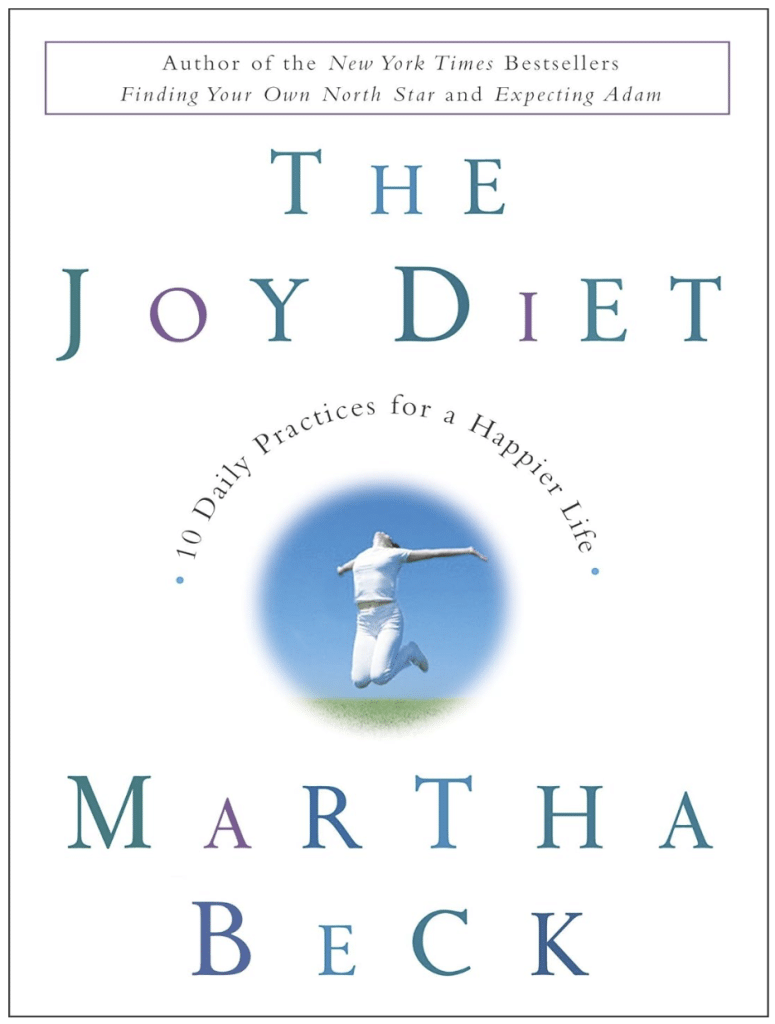
This book isn’t a diet, and it doesn’t even mention food—but that’s exactly why it belongs on this list. The Joy Diet is about cultivating genuine fulfillment in your life, which can be a game-changer if you find yourself turning to food for comfort or pleasure.
When joy feels scarce, it’s easy to seek it in the next bite. (See: eating for pleasure.) But by integrating the practices in this book, you can begin to nurture pleasure in ways that go beyond food. Plus, it’s written by Martha Beck—one of my all-time favorite life coaches—so you know it’s good.
10. The Slow Down Diet by Marc David
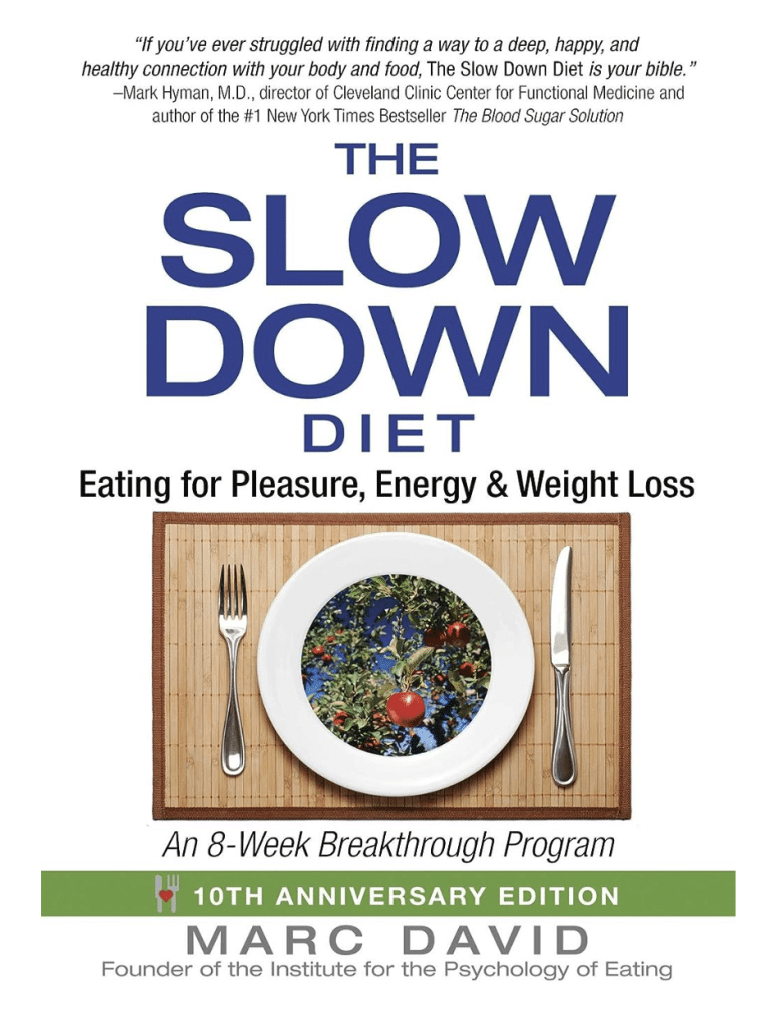
Also not a diet! Instead of prescribing rigid food rules, The Slow Down Diet takes a refreshing approach to weight loss by focusing on the power of relaxation, pleasure, and presence.
Marc David explores how joy, mindfulness, and stress reduction can profoundly impact metabolism, digestion, and appetite regulation. By slowing down and truly savoring meals, we can transform not just how we eat, but how our bodies process food.
Alongside Why We Do the Things We Do, this is one of the few books on this list that speaks directly to the psychology of weight loss—without a single calorie count or restrictive plan in sight.
11. Health At Every Size by Linda Bacon
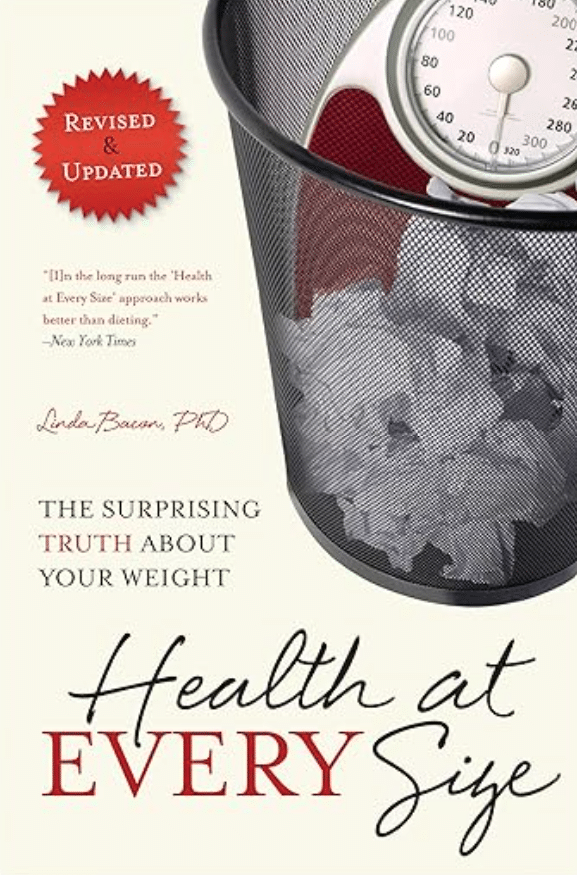
I have to be honest—I have mixed feelings about this book.
What I love about Health at Every Size is its deep dive into set point weight theory. Linda Bacon makes a well-researched case that even extreme dieting won’t lead to lasting weight loss because the body adapts to starvation. She argues that giving up dieting is the clearest path to reaching your natural weight, and I completely agree.
What I don’t love is how oversimplified the solution feels. While ditching diets is an essential first step, it’s not enough on its own to address the deeper psycho-spiritual patterns that drive overeating. Likewise, the book makes feeling your feelings sound far more straightforward than it actually is.
That said, Health at Every Size is an excellent source of motivation for stepping away from dieting—but I encourage you to take the next step and explore the deeper emotional and psychological factors at play as well.
12. When Things Fall Apart by Pema Chodron
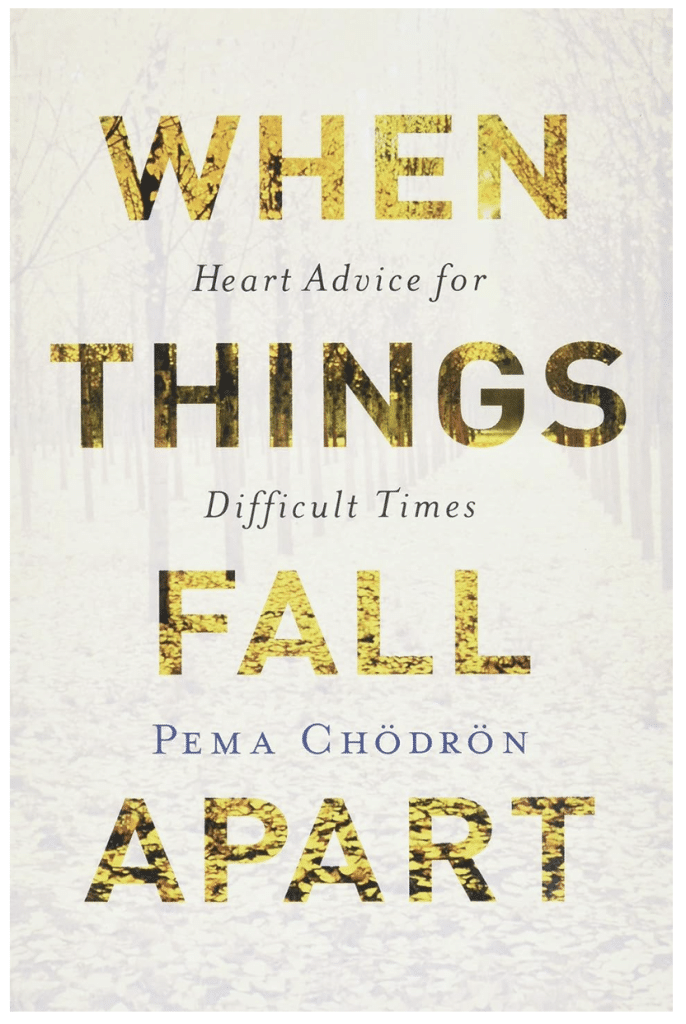
At first glance, a book on Buddhist wisdom might seem out of place on a list of the best books for weight loss motivation. But When Things Fall Apart was pivotal in my own journey of stopping compulsive eating the psycho-spiritual way, which is why it absolutely belongs here.
Bestselling author and Buddhist nun Pema Chödrön explores our deep-seated tendency to seek comfort in times of distress. For many, that comfort comes from food, fueling patterns of emotional eating. In my experience, resisting discomfort is one of the biggest triggers for compulsive eating, and this book helped me see that true growth comes from learning to sit with discomfort rather than numbing or escaping it.
Chödrön’s teachings offer a powerful shift: when we stop running from difficult emotions, we create space for healing. And by embracing discomfort instead of avoiding it, a healthier relationship with food and body can naturally follow.
13. Eating in the Light of the Moon by Anita Johnston
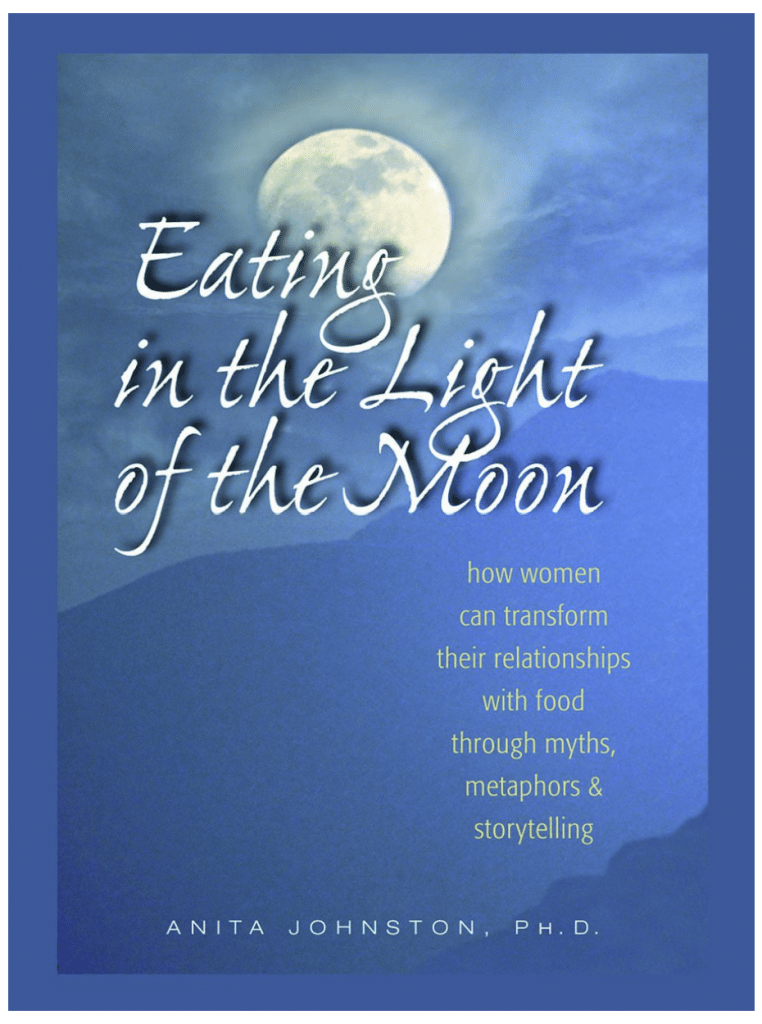
This book takes a refreshingly different approach to food struggles—one rooted in metaphor, storytelling, and deep self-exploration. In Eating in the Light of the Moon, Anita Johnston weaves together myths and cultural narratives to reveal how disordered eating is often a symbolic expression of unmet emotional and spiritual needs.
If you connect with the psycho-spiritual approach to healing your relationship with food, this book will resonate. It doesn’t focus on weight loss, but instead on the inner work that can lead to profound shifts in how we relate to food, body, and self.
Better Together: Suggested Self-Help Book Pairings on Weight Loss Psychology
Understanding the psychology of weight loss is deeply personal and complex. Pairing books that complement each other can provide a more well-rounded perspective on the connection between mind, body, and spirit in relation to food and weight.
Here are some thoughtfully curated book pairings that build on each other’s teachings:
- The Language of Letting Go by Melody Beattie & Daily Reminders on Psycho-Spiritual Wellness by Kari Dahlgren: A powerful duo for those working to release emotional baggage and cultivate self-compassion. These books encourage emotional and spiritual wellness—both essential for overcoming struggles with food and weight.
- Women, Food, and God by Geneen Roth & Eating in the Light of the Moon by Anita Johnston: This pairing explores the emotional and spiritual roots of eating struggles, offering rich narratives and deep introspection to help heal your relationship with food.
- Why We Do the Things We Do by Kari Dahlgren & The Body Keeps the Score by Bessel van der Kolk: A hands-on approach to uncovering and addressing the beliefs and past experiences that shape our behaviors. My interactive exercises in Why We Do the Things We Do complement van der Kolk’s research on how trauma impacts both the mind and body.
- The Joy Diet by Martha Beck & The Slow Down Diet by Marc David: For those looking to bring more mindfulness and pleasure to food and life, this duo highlights the importance of joy, relaxation, and being fully present.
- Don’t Believe Everything You Feel by Robert Leahy & Why We Do the Things We Do by Kari Dahlgren:
The most action-packed duo! Leahy’s strategies for working through emotions pair perfectly with my workbook’s interactive approach to uncovering limiting beliefs—giving you a comprehensive toolkit for emotional wellness and food freedom.
Exploring these pairings can help you gain deeper insight into the emotional, psychological, and spiritual factors that influence our physical bodies. These are more than just books for weight loss motivation—they are keys to a more balanced and sustainable approach to wellness.
Navigating the Psychology of Weight Loss Through Well-Written Pages
Sustainable weight loss motivation isn’t about strict diets, because diets simply don’t work long term. Instead, it’s about shifting your mindset, healing your relationship with food, and addressing the deeper patterns that drive eating habits. The books on this list aren’t quick fixes, but they offer something better: the tools to create real, lasting change.
Which book speaks to you the most? Let me know in the comments—I’d love to hear your recommendations too!


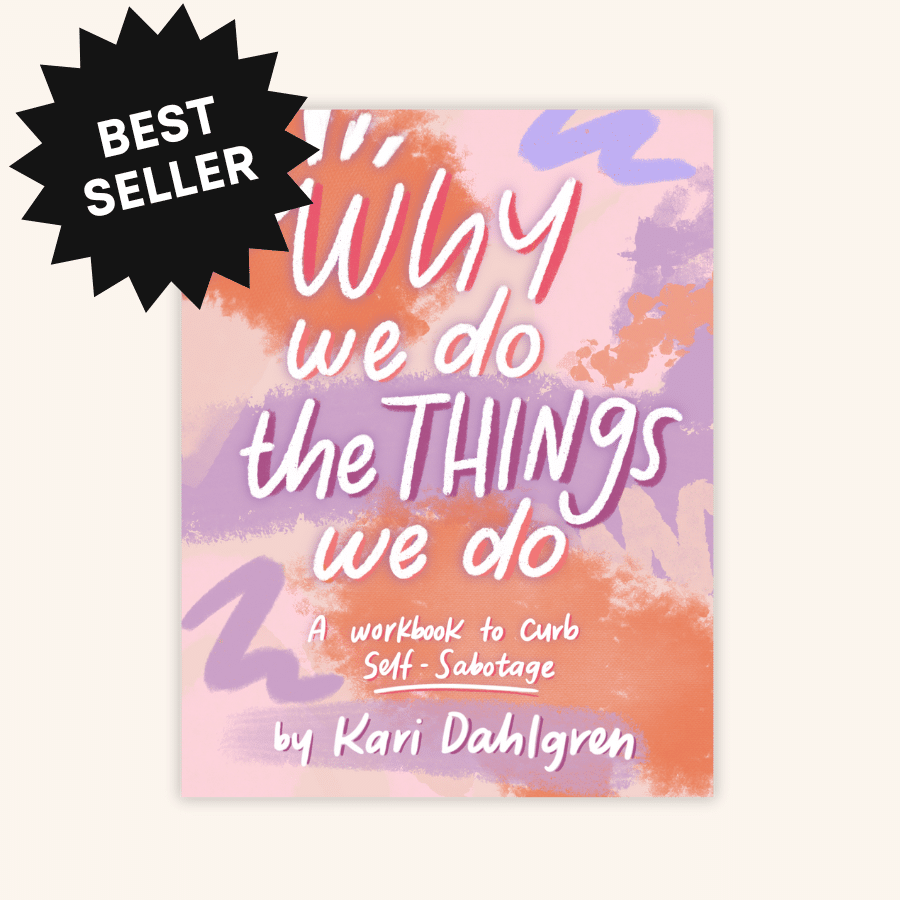
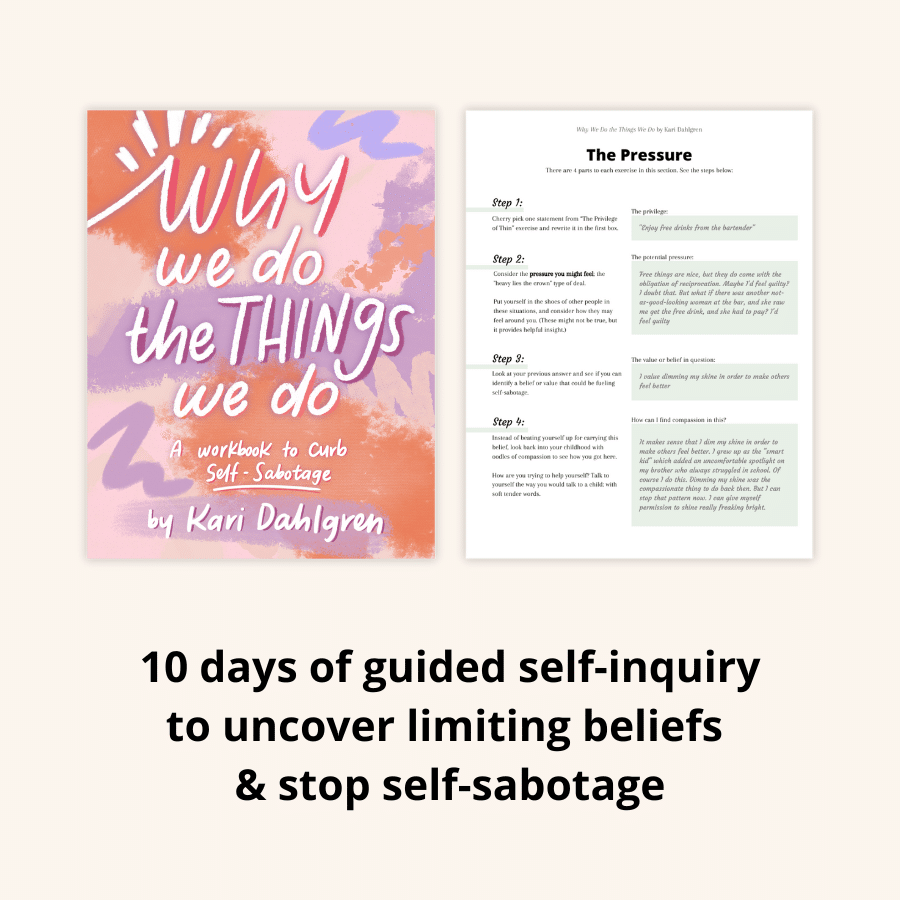
Just ordered on Amazon 🙂 be here in two daysssss
Gotta love two-day delivery 🙂
Hi Kari, I enjoyed this post so much. Thanks for flagging these up! It’s a joy to see the work you’re sharing, thank you for all that you do!
So glad you found it useful Laura! 🙂
My weight is up right now, though I will get it back down as I have in the past with making better food choices. Your reviews of the “15 best self-help books for weight lost” is very much appreciated. Thank you.
I’m glad you like this roundup, John! Thanks for the comment 🙂
There’s a website that has great prices on used books. Secondsale
I got 8 of these books for $20
Im excited to get reading. I’ve found I do better with eating this way if I read your post daily.
I love this Regina! I am flattered that you enjoy reading my work so frequently <3 and I'm sure everyone else here appreciates the tips for bargain books!